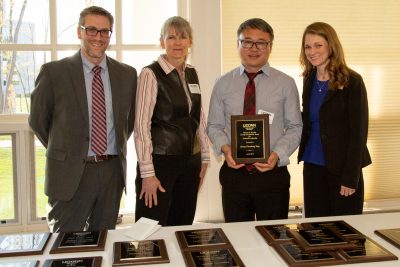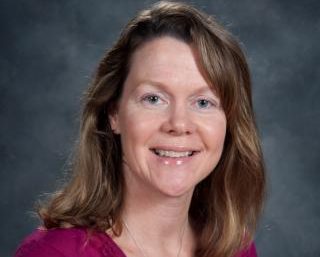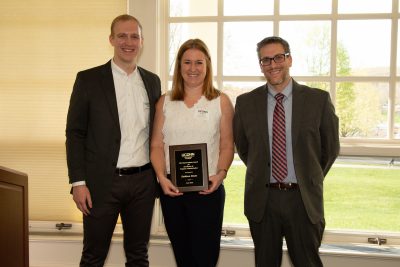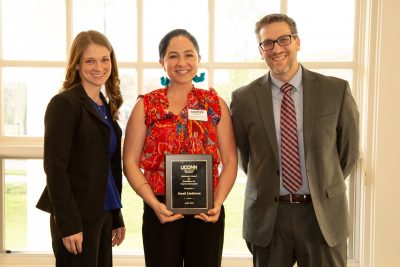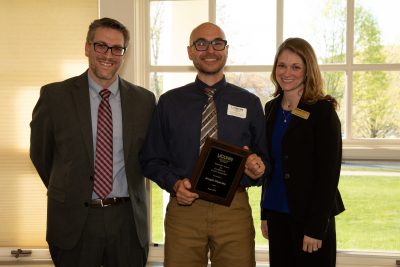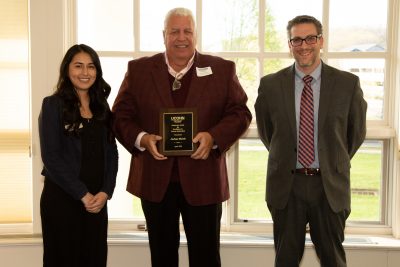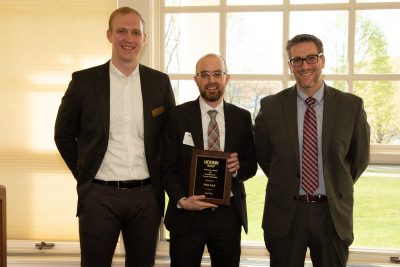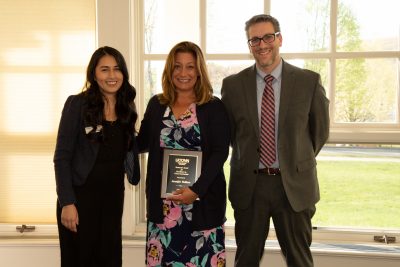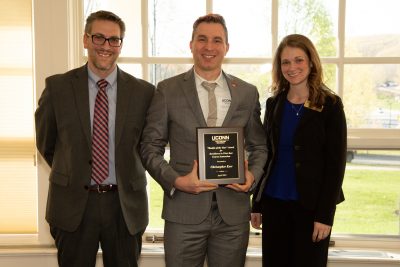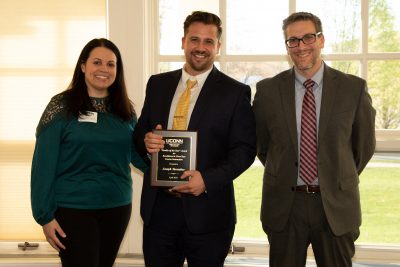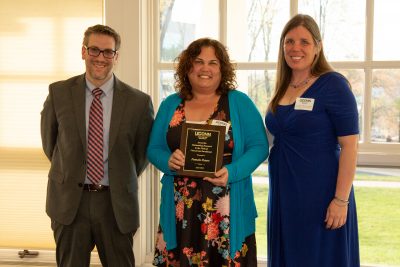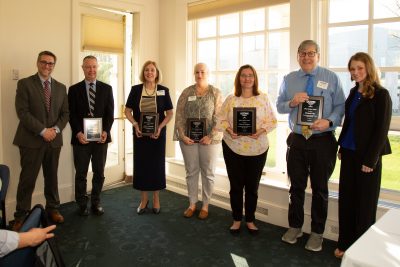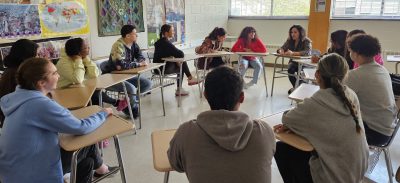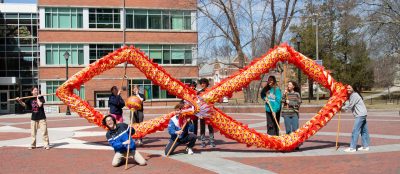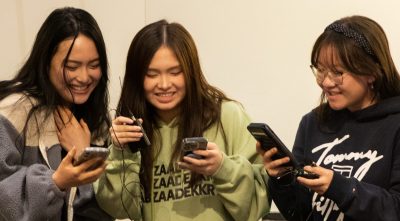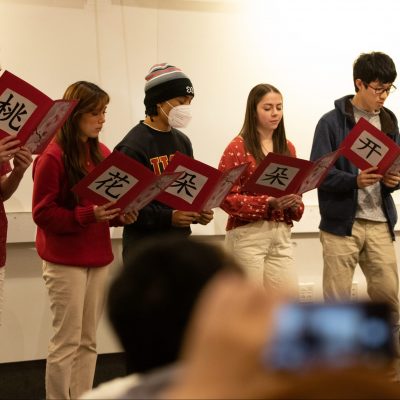Cassandra DiPierro
High School: Fairfield Warde High School
College: Dickinson College, BA in Psychology, 2023
Favorite UConn ECE Memory: My favorite UConn ECE memories were the role play debates that I participated in for my US History and Modern European History courses.
Best UConn ECE Benefit: The most useful benefit of ECE was the college credit I gained, which allowed me to take additional electives in college and further explore my academic interest in public health.
What are you currently doing? I am currently pursuing a Master of Public Health in Epidemiology at the University of Toronto in Canada through the support of a Fulbright Graduate Studies Award. With the knowledge I gain from this experience, I hope to work to improve the access and quality of LGBTQ+ healthcare in the United States.
Amara McNeil
High School: Classical Magnet School – Hartford, CT
College: Fordham University/Lincoln Center – B.A. in Theater Design and Production, 2023
Favorite UConn ECE memory: My favorite memories are the heated debates that we would all get into in Philosophy class. Even our teacher would get passionate! Everyone cared, and those early conversations sparked a love of philosophy that I carry into my artistry.
Best UConn ECE benefit/ takeaway: Having an insight into materials, I would be able to study more in-depth in college. There were many moments were I remembered a text or topic that was touched on in my ECE class.
What are you currently doing? Now, I am a freelance lighting designer. After wrapping up my post-grad fellowship as the Howell Binkley Fellow, working on shows such as The Wiz and Come From Away tours. I am now prepping my own design here in NYC, as well as getting ready to assist Off-Broadway at Playwrights Horizons!
Karissa Touma
High School: Wolcott High School
College: Western New England University, B.S. Actuarial Science degree, 2022
Favorite UConn ECE memory: In one of the UConn ECE courses I took we had a huge party to celebrate everyone passing the final exam! It was so great to celebrate everyone’s hard work in the course and the amazing accomplishment.
Best UConn ECE benefit/ takeaway: The best UConn ECE benefit was having enough credits to graduate college an entire year earlier than expected. This saved me money in tuition and allowed me to begin my career sooner.
What are you currently doing: I recently got married in October 2023 and work full time for the Cigna Group as a Senior Actuarial Analyst. I am in a reserving role for our Vision and Individual and Family Plans (IFP) blocks of business. I have passed 6 Actuarial exams, all ASA pathway modules, and 3 VEEs.
Morgan Nace
High School: Daniel Hand High School
College: UConn, College of Engineering, Mechanical Engineering, 2023
Favorite UConn ECE memory: My favorite UConn ECE memory was getting to do hands on labs in physics.
Best UConn ECE benefit/ takeaway: The best benefit of my ECE course in physics was learning how to study for freshman year courses at college. Experiencing UConn level exams helped me feel confident for my future after high school.
What are you currently doing? I am currently a Product Engineer at Ensign-Bickford Aerospace & Defense (EBAD) in Simsbury, CT. EBAD makes mission critical hardware for the aerospace and defense industry. At EBAD, I get to be on a team that makes separation stages and flight termination systems for launch vehicles and missiles.
Keegan Eveland
High School: Middletown High School
College: University of New Hampshire, B.S. Zoology with a minor in Animal Behavior
Favorite UConn ECE memory: I really enjoyed learning how to customize and design enrichment suitable for the species that you’re working with. There is something about seeing an animal’s mind at work and how they approach and solve puzzles that is so telling about their perception of the world and gives a glimpse into the inner workings of their cognitive processes.
Best UConn ECE benefit/ takeaway: Getting to learn about advanced subject matter that I otherwise wouldn’t have been exposed to during high school was highly beneficial. Enrolling in dual-enrollment courses guided me to the line of work that I am passionate about and currently work in today.
What are you currently doing? During my undergrad years, I focused on studying population acoustics of Brazilian Free-Tailed bat swarms in New Mexico, as well as the acoustics of various bat species in Brazil. I got to dip my feet into some field work gathering acoustic data for Little Brown bats in a large hibernacula in Vermont. This year I am a post-baccalaureate research fellow at Johns Hopkins investigating the navigation behaviors of Egyptian Fruit bats. When I am not doing that I also assist in neurological surgeries and experiments for Big Brown bats that are looking at how they process sounds in the auditory pathway of the brain.
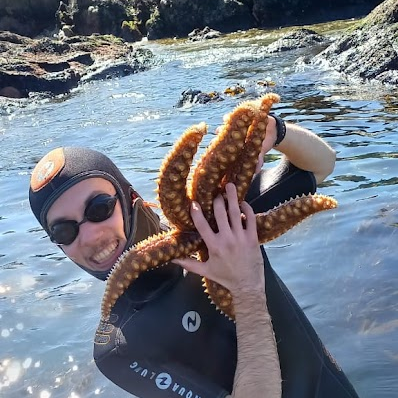 Jonas Goemans
Jonas Goemans
High School: Edwin O. Smith High School
College: Hasselt University, Bachelor in Biology, 2023
Favorite UConn ECE memory: I truly loved taking these advanced classes with like-minded classmates, it made our interactions and lessons really interesting. I would say my favorite memory would be the dissection of a fetal pig in Biology.
Best UConn ECE benefit/ takeaway: Due to taking these college level courses I was ahead of my cohort when starting my Bachelor in Biology in Belgium.
What are you currently doing? I am currently doing an Erasmus Mundus Joint Master Degree in Tropical Biodiversity and Ecosystems (TROPIMUNDO). I also recently completed an internship at Chondrolab in Chile studying juvenile sharks and have been pursuing my passion in rock-climbing, both indoors and outdoors.
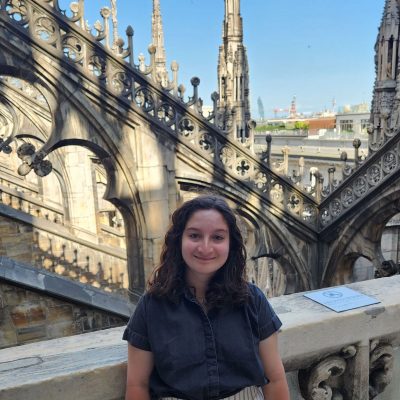
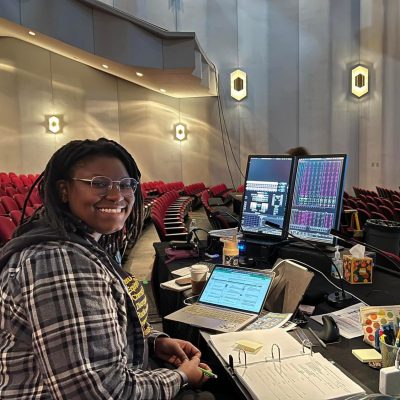
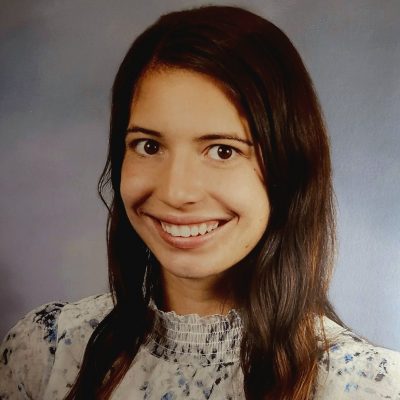
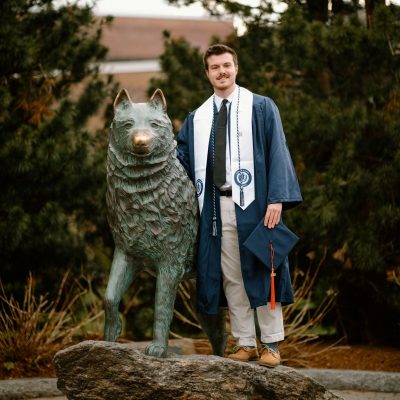
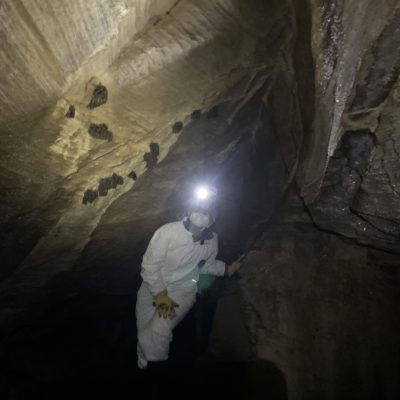
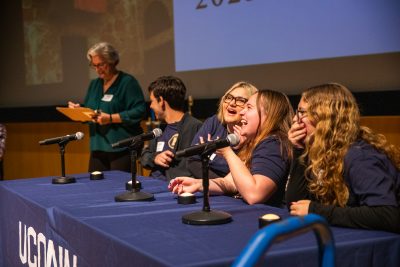 Christopher Todd, kicked off the day with a warm welcome to all student participants and Instructors from Bristol Central High School, Plainville High School, North Haven High School, and Newington High School. Students were set up for an exciting day full of immersing themselves in Italian culture, grammar, history, and much more. They were encouraged to take full advantage of this opportunity – to interact with the amazing UConn Italian Teaching Assistants who facilitated the morning Immersion Sessions, collaborate with their peers from neighboring Connecticut high schools, and to bring their best to the head-to-head, jeopardy-style Quiz Bowl competition.
Christopher Todd, kicked off the day with a warm welcome to all student participants and Instructors from Bristol Central High School, Plainville High School, North Haven High School, and Newington High School. Students were set up for an exciting day full of immersing themselves in Italian culture, grammar, history, and much more. They were encouraged to take full advantage of this opportunity – to interact with the amazing UConn Italian Teaching Assistants who facilitated the morning Immersion Sessions, collaborate with their peers from neighboring Connecticut high schools, and to bring their best to the head-to-head, jeopardy-style Quiz Bowl competition.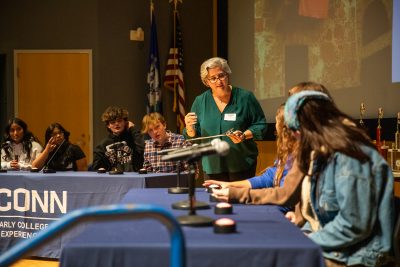
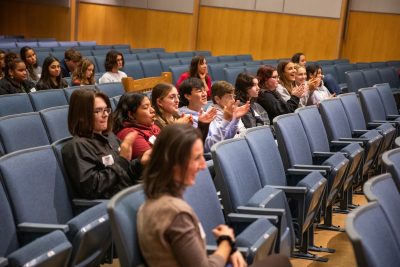 with another high school in hopes to buzz in first and answer enough questions correctly to qualify for the next round. Students had limited time to answer questions, and they had to provide their answers in Italian only. Dr. Chiappetta-Miller stated, “the Quiz Bowl ended in no less than a twist when it turned out that Newington and Bristol Central had drawn. We had to go to penalties and the Newington team came out on top!” It was a very exciting and close competition, with Newington High School winning first place, followed by Bristol Central High School in second place, and Plainville High School in third place. A bonus MVP round was played at the end of the event, where individual students competed on stage against one another. Alex from Newington High School was named the MVP of the day.
with another high school in hopes to buzz in first and answer enough questions correctly to qualify for the next round. Students had limited time to answer questions, and they had to provide their answers in Italian only. Dr. Chiappetta-Miller stated, “the Quiz Bowl ended in no less than a twist when it turned out that Newington and Bristol Central had drawn. We had to go to penalties and the Newington team came out on top!” It was a very exciting and close competition, with Newington High School winning first place, followed by Bristol Central High School in second place, and Plainville High School in third place. A bonus MVP round was played at the end of the event, where individual students competed on stage against one another. Alex from Newington High School was named the MVP of the day.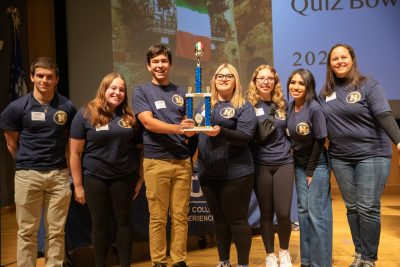
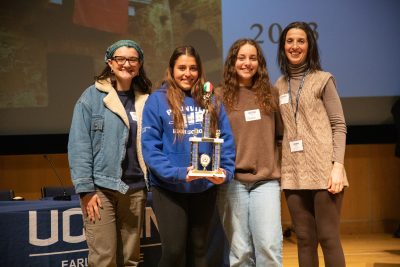
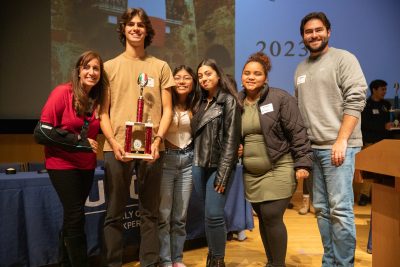
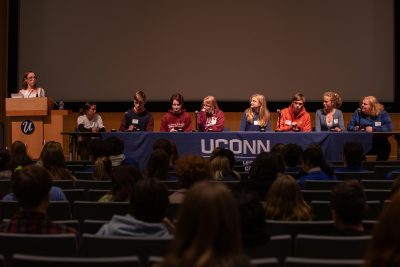 Dr. Florence Marsal, UConn ECE French Faculty Coordinator, the day was set up in a very similar manner to the Italian event. The French Immersion Day & Quiz Bowl is the longest running UConn ECE student language event, dating back to 2001. Since its creation, several hundred students have participated from dozens of our partner high schools across the state. This year UConn ECE Instructors brought about 80 student participants, representing Lewis S Mills High School, Daniel Hand High School, Lyme-Old Lyme High School, Granby Memorial High School, Cheshire High School, Nathan Hale-Ray High School, Tolland High School, and Edwin O. Smith High School.
Dr. Florence Marsal, UConn ECE French Faculty Coordinator, the day was set up in a very similar manner to the Italian event. The French Immersion Day & Quiz Bowl is the longest running UConn ECE student language event, dating back to 2001. Since its creation, several hundred students have participated from dozens of our partner high schools across the state. This year UConn ECE Instructors brought about 80 student participants, representing Lewis S Mills High School, Daniel Hand High School, Lyme-Old Lyme High School, Granby Memorial High School, Cheshire High School, Nathan Hale-Ray High School, Tolland High School, and Edwin O. Smith High School.
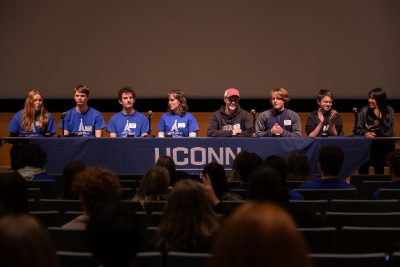 the Quiz Bowl include:
the Quiz Bowl include: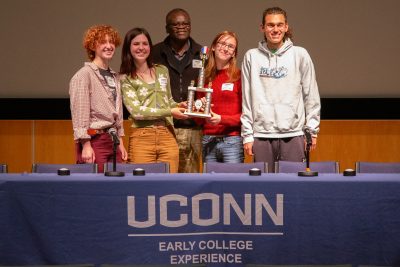
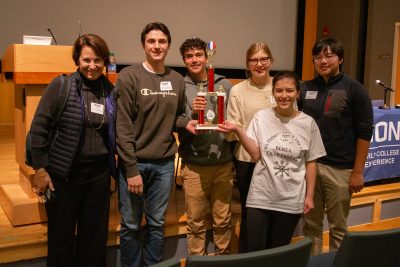
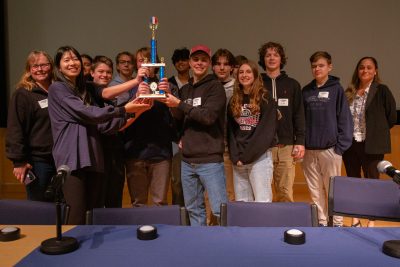
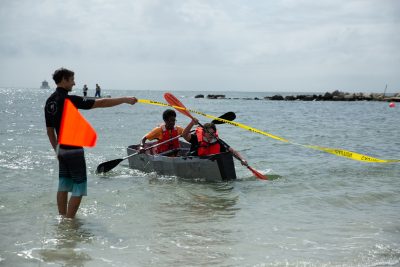 Friday, October 6th. With over 300 students in attendance, we kicked off the academic year with one of our largest annual student events! This year’s theme, School Mascots, in honor of UConn’s newest addition Jonathan XV, brought about much collaboration, dedication, teamwork, and school spirit which was quite evident as students prepared for and participated in the event. Students
Friday, October 6th. With over 300 students in attendance, we kicked off the academic year with one of our largest annual student events! This year’s theme, School Mascots, in honor of UConn’s newest addition Jonathan XV, brought about much collaboration, dedication, teamwork, and school spirit which was quite evident as students prepared for and participated in the event. Students 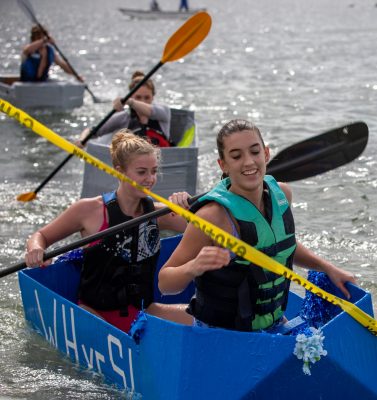 spent countless hours prior to race day planning and building their handcrafted cardboard and duct tape boats, and then arrived at the event eager to listen, engage, and share failures and successes with their peers and presenters.
spent countless hours prior to race day planning and building their handcrafted cardboard and duct tape boats, and then arrived at the event eager to listen, engage, and share failures and successes with their peers and presenters.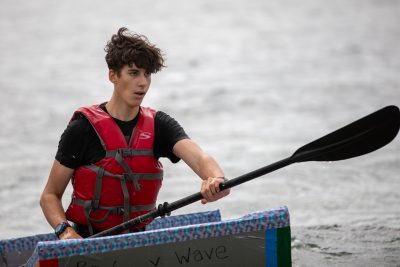 awards presented for placing in the races, The Morgan School’s “M.S.S. Dog Pound” took home the Best Visual Award, The Sound School’s “Usain Boat” won the Best Boat Name Award, East Granby High School’s “The Templor Transporter” was awarded the new Interdisciplinary Collaboration Award, and University High School of Science & Engineering’s boat, “The Raging Rooster”, earned the People’s Choice Award.
awards presented for placing in the races, The Morgan School’s “M.S.S. Dog Pound” took home the Best Visual Award, The Sound School’s “Usain Boat” won the Best Boat Name Award, East Granby High School’s “The Templor Transporter” was awarded the new Interdisciplinary Collaboration Award, and University High School of Science & Engineering’s boat, “The Raging Rooster”, earned the People’s Choice Award.
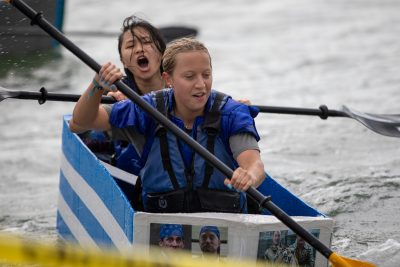
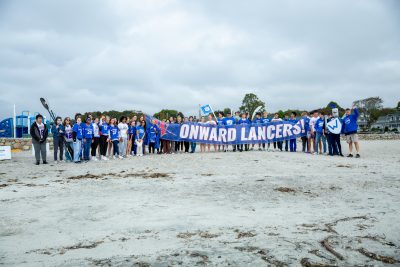
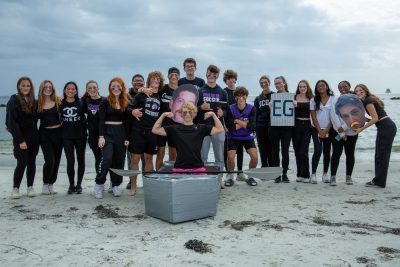
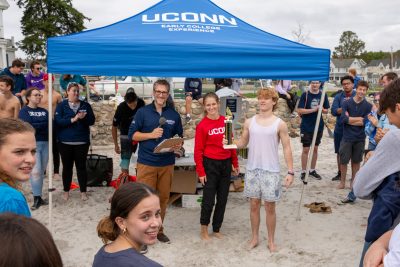
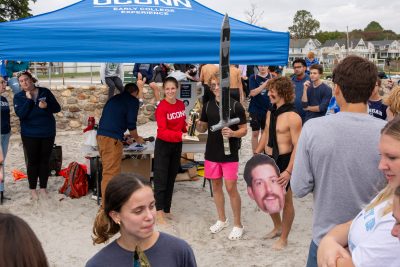
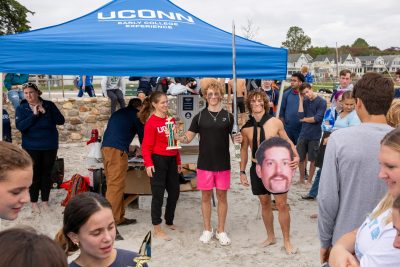
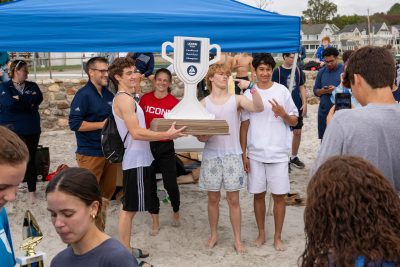
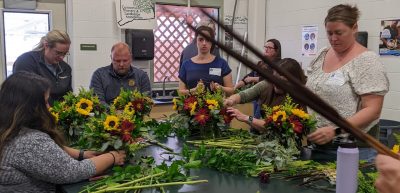 activities including a field practicum on analyzing soil for specific purposes, a discussion and update on plant diseases, and learning about new trends in the landscape industry. The group also discussed students’ preparation for future careers in the Green Industry and took part in a hands-on floral workshop where teachers were introduced to beautiful fall arrangements which can be introduced in their Floral Art classes.
activities including a field practicum on analyzing soil for specific purposes, a discussion and update on plant diseases, and learning about new trends in the landscape industry. The group also discussed students’ preparation for future careers in the Green Industry and took part in a hands-on floral workshop where teachers were introduced to beautiful fall arrangements which can be introduced in their Floral Art classes.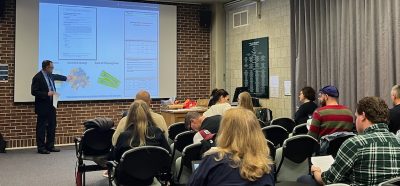 Wolla, Economic Education Officer, Federal Reserve Bank of St. Louis and Ariel Solomon, Curriculum Designer, Marginal Revolution University. Ian Tiedemann highlighted his students’ who created a podcast script for the 2023 issue of the Journal of Future Economists. The theme was “Economics of Globalization”. Ian’s students submitted their podcast script titled “It’s a (s)Mall World: Globalization, E-Commerce, and Shopping Malls” which can be reviewed in the Journal of Future Economists. Scott A. Wolla’s shared a teaching activity “Teaching Market Structures with Gum” and discussed “Monetary Policy has Changed. Has Your Teaching?” Ariel Slonim, Curriculum Designer, Marginal Revolution University presented on: “Supply, Demand, Action! Harnessing interactive tools to teach supply and demand” and “Cracking the Code: Understanding GDP and Inflation through interactive tools.” ECE Faculty Coordinator for Economics, Natalia V. Smirnova discussed “Teaching Diversity, Equity, and Inclusion Topics in Economics”.
Wolla, Economic Education Officer, Federal Reserve Bank of St. Louis and Ariel Solomon, Curriculum Designer, Marginal Revolution University. Ian Tiedemann highlighted his students’ who created a podcast script for the 2023 issue of the Journal of Future Economists. The theme was “Economics of Globalization”. Ian’s students submitted their podcast script titled “It’s a (s)Mall World: Globalization, E-Commerce, and Shopping Malls” which can be reviewed in the Journal of Future Economists. Scott A. Wolla’s shared a teaching activity “Teaching Market Structures with Gum” and discussed “Monetary Policy has Changed. Has Your Teaching?” Ariel Slonim, Curriculum Designer, Marginal Revolution University presented on: “Supply, Demand, Action! Harnessing interactive tools to teach supply and demand” and “Cracking the Code: Understanding GDP and Inflation through interactive tools.” ECE Faculty Coordinator for Economics, Natalia V. Smirnova discussed “Teaching Diversity, Equity, and Inclusion Topics in Economics”.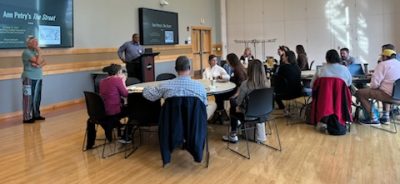 Faculty Coordinator, Dr. Claudia Koerting during their professional development workshop. The group of 13 teachers conducted water testing by taking readings using instruments that measure salinity, oxygen, and temperature. They deployed a water sampler to retrieve water samples near the bottom of the river and gathered surface water samples as well. Instructors performed two plankton tows and brought samples back for microscopic evaluation. An additional two sample sites were chosen, and all samples returned with the group to the seaport sailing center where they tested for chlorophyll content using a fluorometer and performed a light/dark experiment with water from two sites. At the sailing center the group ran their analysis, looked at the plankton tow and compared oxygen uptake in the light/dark bottle experiment. Conversations were held about how these samples could inform scientists and regulators about policy guiding water use in the river. By the end of the day Instructors learned a new method, a new instrument, and made new connections and shared ideas to implement in their UConn Marine Science courses.
Faculty Coordinator, Dr. Claudia Koerting during their professional development workshop. The group of 13 teachers conducted water testing by taking readings using instruments that measure salinity, oxygen, and temperature. They deployed a water sampler to retrieve water samples near the bottom of the river and gathered surface water samples as well. Instructors performed two plankton tows and brought samples back for microscopic evaluation. An additional two sample sites were chosen, and all samples returned with the group to the seaport sailing center where they tested for chlorophyll content using a fluorometer and performed a light/dark experiment with water from two sites. At the sailing center the group ran their analysis, looked at the plankton tow and compared oxygen uptake in the light/dark bottle experiment. Conversations were held about how these samples could inform scientists and regulators about policy guiding water use in the river. By the end of the day Instructors learned a new method, a new instrument, and made new connections and shared ideas to implement in their UConn Marine Science courses.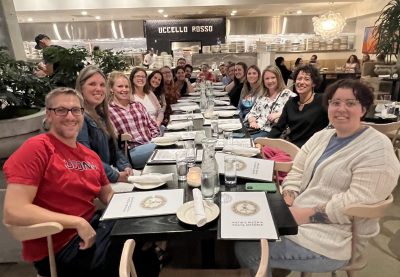 colleagues Ansley Diamond, Associate Vice President of Academic Affairs, Connecticut State Colleges and Universities (CSCU) System and Program Manager for Library Consortium Operations, Patrick Carr, first time NACEP attendees who were making connections with concurrent and dual enrollment for the State.
colleagues Ansley Diamond, Associate Vice President of Academic Affairs, Connecticut State Colleges and Universities (CSCU) System and Program Manager for Library Consortium Operations, Patrick Carr, first time NACEP attendees who were making connections with concurrent and dual enrollment for the State.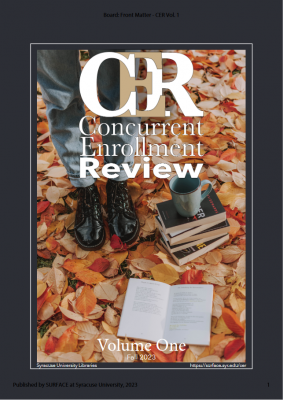 Executive Director, joins colleagues from Syracuse University, Boise State University, and University of Pittsburgh to serve as an Associate Editor. Carissa Rutkauskas’s, UConn ECE’s Outreach and Evaluation Specialist, with former UConn ECE graduate student, high school teacher, and Labor Organizer with the Connecticut Education Association, Kathrine Grant’s paper Formative Threads in the Tapestry of College Credit in High School: An Early History of the Development of Concurrent Enrollment and a Case Study of the Country’s Oldest Program was included. Their research explores contributing factors to DE/CE development and provides a historical review of the longest running CE program in the United States, the University of Connecticut’s Early College Experience Program, founded in 1955.
Executive Director, joins colleagues from Syracuse University, Boise State University, and University of Pittsburgh to serve as an Associate Editor. Carissa Rutkauskas’s, UConn ECE’s Outreach and Evaluation Specialist, with former UConn ECE graduate student, high school teacher, and Labor Organizer with the Connecticut Education Association, Kathrine Grant’s paper Formative Threads in the Tapestry of College Credit in High School: An Early History of the Development of Concurrent Enrollment and a Case Study of the Country’s Oldest Program was included. Their research explores contributing factors to DE/CE development and provides a historical review of the longest running CE program in the United States, the University of Connecticut’s Early College Experience Program, founded in 1955. 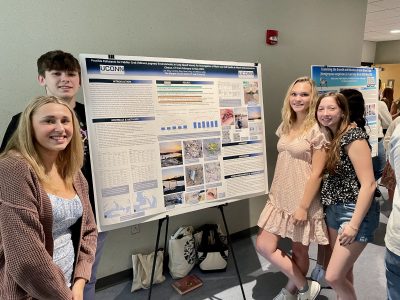
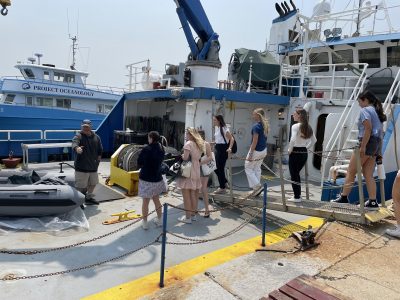
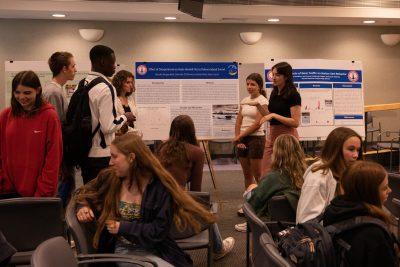
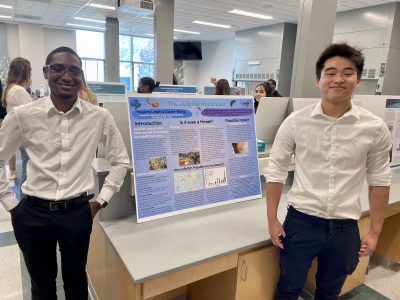
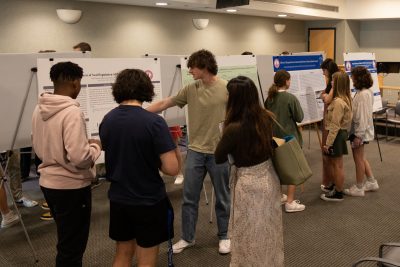
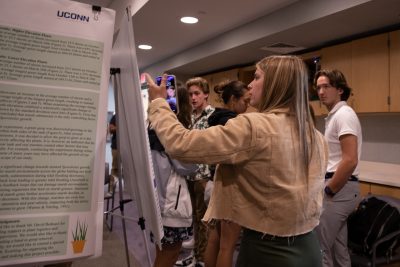
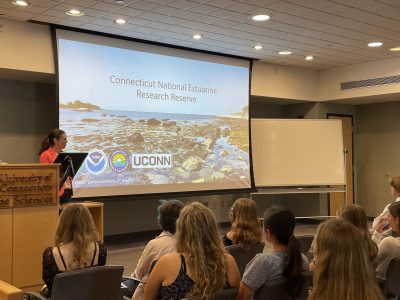
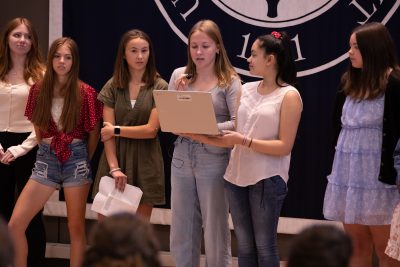
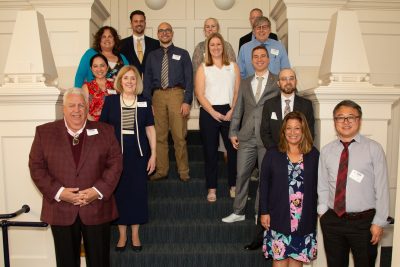 UConn ECE faculty, staff, and award winners look forward to the annual Professional Recognition Awards Ceremony each year as a momentous time to decompress and celebrate the accomplishments and successes of the community. This year, we were finally able to host a fully in-person Awards Ceremony for award winners, family, and friends on the UConn Storrs Campus, something we have not been able to do for the past four years. Our award winners and guests gathered for the Awards Ceremony at the UConn Alumni Center on April 21st for an elegant sit-down dinner where they were welcomed by OECP Executive Director, Christopher Todd as well as UConn’s Associate Vice Provost, Dr. Peter Diplock.
UConn ECE faculty, staff, and award winners look forward to the annual Professional Recognition Awards Ceremony each year as a momentous time to decompress and celebrate the accomplishments and successes of the community. This year, we were finally able to host a fully in-person Awards Ceremony for award winners, family, and friends on the UConn Storrs Campus, something we have not been able to do for the past four years. Our award winners and guests gathered for the Awards Ceremony at the UConn Alumni Center on April 21st for an elegant sit-down dinner where they were welcomed by OECP Executive Director, Christopher Todd as well as UConn’s Associate Vice Provost, Dr. Peter Diplock.